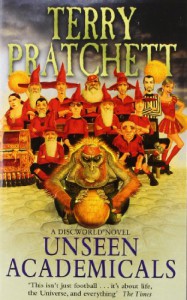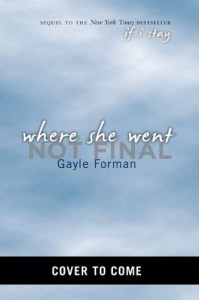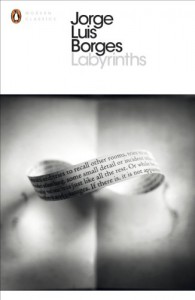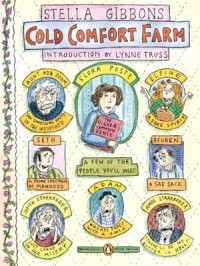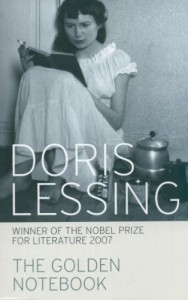
Largely well written but Finch's character's [manic] depression and eventual suicide is completely written in such a way as to enable Violet's character development. Not a bad book, but certainly not one I can recommend. No, you know what? This is a bad book. I keep getting angrier the more I think about it.
Warning, this is a deeply negative review.
TL,DR: apparently it’s better to commit suicide than live with mental illness. Who knew.
I hated this book. I hated everything about it. It has become the first – and hopefully the last – book that I have deleted from my Kindle immediately I read it. I was so angry that I cried for about the last third of this book and genuinely had to seek comfort from my boyfriend. This book is a lie. I genuinely believe it could be dangerous.
A brief summary: Finch and Violet have a meet-cute on top of the bell tower of their school. Violet is there because she is suffering from suicidal thoughts after being in a car accident in which she lost her older sister. Finch is there because he suffers from undiagnosed bipolar disorder (this is later confirmed, I’m not speculating) and has been suffering from suicidal thoughts on and off for a number of years. They pair up to complete a class project, and fall in love. However, it soon becomes apparent that their love may struggle to endure under the weight of Finch’s mental illness.
Much has been made of the similarity of this toThe Fault in our Stars. I disagree that it’s in any way similar. For one, the writing in TFioS, while undoubtedly pretentious, is both dark and light. It shows the good and the bad in the world. The writing in this book is sometimes lovely, but is unrelentingly cynical. Even the “up” moments are downers in Niven’s hands. Secondly, the medical issue in TFioS is, essentially, an unsolveable one. Cancer can be incurable. People can become terminally ill from it, in such a way that they are beyond medical help. They may live one month, one year, or five years – but they will die from it. That is a key difference in the way issues are handled in TFioS – with a certain air of inevitability – and the way they ought to have been handled in this book. Depression, bipolar disorder, and many other medical issues which surround the brain, can be cured, or at least, can be managed indefinitely. Obviously, not every potential suicide can be prevented. But the strong message I got from this book was that, if you have a mental illness, you might as well have a terminal disease – because you are incurable.
I was not fond of Violet as a character. I felt she was flat, even after she made her recovery. I didn’t like her attitude towards her friends, towards school, towards her parents. She didn’t seem to feel any conflict between being depressed and bereaved and wanting to try to recover and at least be able to participate in her school work. Instead, she was written in a way that seemed to imply that she thought that she was right not to participate, right not to have to communicate with anyone, in any way. I think I could have been more forgiving of her, though, if it wasn’t for the way Finch’s character is treated with respect to her character.
Finch, essentially, exists to further Violet’s character development. His behaviour – and his presentation of his illness – changes with every “milestone” she reaches – from getting back in to the car, to losing her virginity, to her eventual complete recovery from her almost fugue-like state at the start of the book. From Violet’s perspective, Finch is just portrayed as this wacky guy who shows up every time she needs help with something and needs to feel better. Finch’s own difficulties – with his parents, with his mind – are minimised so much. The author never feels the need to have Violet directly help him (until some ill-advised intervention-ing far to late in the game) or to have her recognise that Finch is genuinely struggling and needs help. Okay, she’s seventeen, so maybe we shouldn’t expect too much from her. But Finch at one point or another directly shows or tells pretty much every adult in the entire story that he is on the point of breaking down completely and no one ever does anything. Except expel him from school. Maybe I’m being naive, but he’s still a child at school. Where is the intervention here? The school is responsible for him while he is there – does it not seem completely shady that they barely make any effort to get in touch with either of his parents?
And even if this is all buyable, I cannot forgive the way Finch is treated by the author herself. From Finch’s perspective, we get all this bumph about a diagnosis being a label, about medication fogging up your brain. Fair enough – it’s natural to feel like that when you’re struggling with your mental health. But it’s never challenged by anyone else in the text. There is never any indication to the reader from the author that this is not in fact the cold hard truth of being mentally ill. Still further, the author goes on to heavily imply that nothing anyone could have done could have prevented Finch from committing suicide. This despite the fact that Finch is missing for weeks before he eventually does kill himself. There are heavy overtones of him being “too special to live”. This is an absolutely appalling thing to aim at teenagers struggling with mental illness. What part of this is supposed to be comforting? What part of this says anything other than: “you are right about yourself. You are right that you cannot live with this and you never will be able to live with this.”
After Finch’s death, Violet goes on this wacky treasure hunt to fulfil the rest of their “wandering Indiana” project. Again, this is all about her – about how the things he left her behind can help her grow and change as a person. Not about what he was. Not about how he was failed. Not about who he could have been. It’s heavily implied that no one could have done anything. That suicide was not preventable. Bullshit.
Niven notes in an afterword that she had a romantic partner who committed suicide. This book comes very much from that perspective – of the person left behind rather than the person doing the leaving. Written differently, perhaps written entirely from Violet’s perspective, maybe, just maybe this could have been a feasible tack to take. However, the choices that Niven makes in the book, especially in light of this information, leave a very bitter taste in my mouth and leave me very wary of her motives in bringing this personal experience to the fore in this work, especially when it’s aimed at a young adult audience. On a personal note, I, too, have someone very close to me who has struggled with these thoughts. The thought that his struggle is as meaningless as this book makes it out to be is downright insulting.
I cannot recommend this book in good conscience. I genuinely believe it could have a wholesale negative effect on the mind of someone already plagued by these kind of thoughts, these kind of illnesses. From my point of view, as a person with more than one close friend with these issues, it was deeply affecting in an almost completely negative way. I was made angry by Niven’s dismissive attitude towards Finch, and anguished beyond belief at the resolution of his story. Do not read this book. I give All the Bright Places one out of ten.
PS: I actually think that it would have been more interesting to have cut Violet from the book completely and substitute her with a stronger character – even Amanda, who is brought up in the book as a stereotypical mean girl who turns out to have her own depression issue, would have made a more suitable foil to Finch, I think, as she seemed to have a more well-defined personality and social role that it would have been interesting to see him interact with AND it would have been interesting to seem him interact with someone who is receiving (seemingly) successful treatment for issue related to his own.
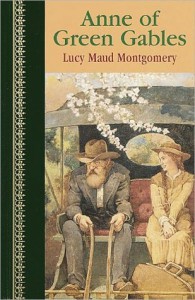 I really hated this book the first time I tried to read it.
I really hated this book the first time I tried to read it. 1
1




